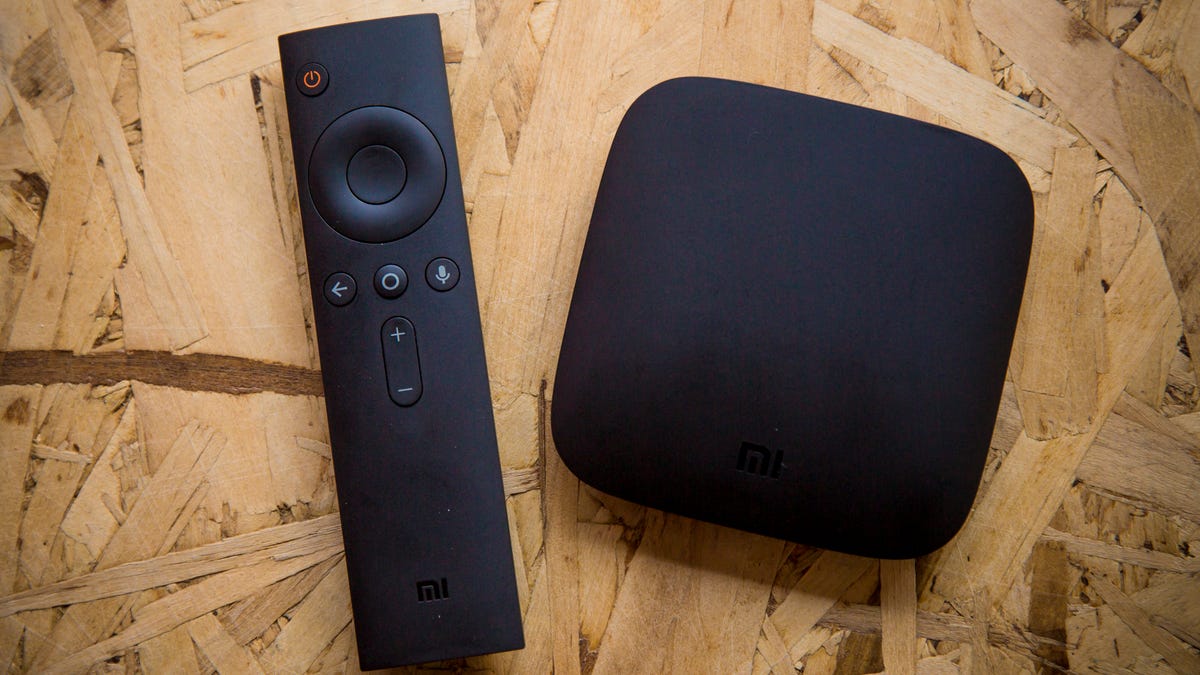Upstart Xiaomi just launched its first US device. And that's important because...
The set-top box launched at Google I/O sets the stage for more things to come, like a Xiaomi phone that works with Google's Daydream VR.

Xioami's first gadget for the US market isn't a phone, but we knew it wouldn't be. When I spoke to the company in April, global VP Hugo Barra made it exceedingly clear that 2016 isn't the year we'll see a Xiaomi phone natively compete against Samsung, Apple and all the rest.
But that doesn't make the launch of Xiaomi's Mi Box set-top box any less significant. In fact, it's a sign of Xiaomi putting its money where its mouth is and expanding into the mature US market in a field rife with rivals -- just like it'll have to do when it readies that very first US phone.
By selecting a set-top box rather than a handset, Xiaomi is deliberately planting hooks in strategic places. Using the annual Google I/O conference as a stage to announce its own product amplifies the noise Xiaomi can generate around itself, and that's important attention for a relative unknown in the US.
"TV products are one of our specialties," said Xiaomi's Barra, Google's former VP of Android, during our interview at Google I/O. "So the fact that we're bringing one of our most important products to the US certainly does say a lot."
Xiaomi global VP (and former Google Android VP) Hugo Barra shows CNET the Mi Box at Google I/O 2016.
The set-top box runs on Android TV, and therefore supports features like HDR and 4K UHD shows and games, as well as Google Cast, which lets you mirror what you're watching on your phone screen to the TV screen. Whenever Android TV updates, so will the Mi Box. And while Roku and Nvidia are two powerful brands in this space, Xiaomi plans to do what it always does: cast a low price lure (we don't know what it is yet) and wiggle it around to attract buyers who aren't steadfastly brand-loyal.
While Xiaomi would certainly like the Mi Box to sell (because, who doesn't like their products to sell?), the company is realistic that the set-top box also acts as target practice.
A set-top box is "also a much simpler product [in] many ways than a smartphone," Barra said, which requires extensive testing and certification to make sure that phones work with carrier networks. "So you know one of the things that you could say is this is Xiaomi sort of...warming up to this market, making sure that people start to know our brand."
Committing to Google's VR Daydream
If the Mi Box is Xiaomi's warm-up act for the US, it's an all but red-hot fact that Xiaomi's first phone for these shores (which is sure to launch globally as well) will support Google's Daydream standard for virtual reality.
Along with Samsung, HTC, ZTE, Huawei, Alcatel, Asus and LG, Xiaomi is one of the brands to commit to making phones that work with the just-announced VR software -- but the question is when. Beating out some of its better-known competitors in supporting Daydream (or better yet, becoming the brand behind a Nexus phone), will help improve Xiaomi's chances of scoring some sales.
These are certainly things that Xiaomi needs to think about as it lays its plans. But the Mi Box's fate is important on its own, too. If successful, it will set the stage for introducing the brand's devices like phones and home appliances into an important region. If not, Xiaomi may have to adjust its product portfolio and philosophy for the US, and for other similar markets.
So far, Xiaomi seems to be playing things smart. Now let's see if this Mi Box can stand up to the challenge.

